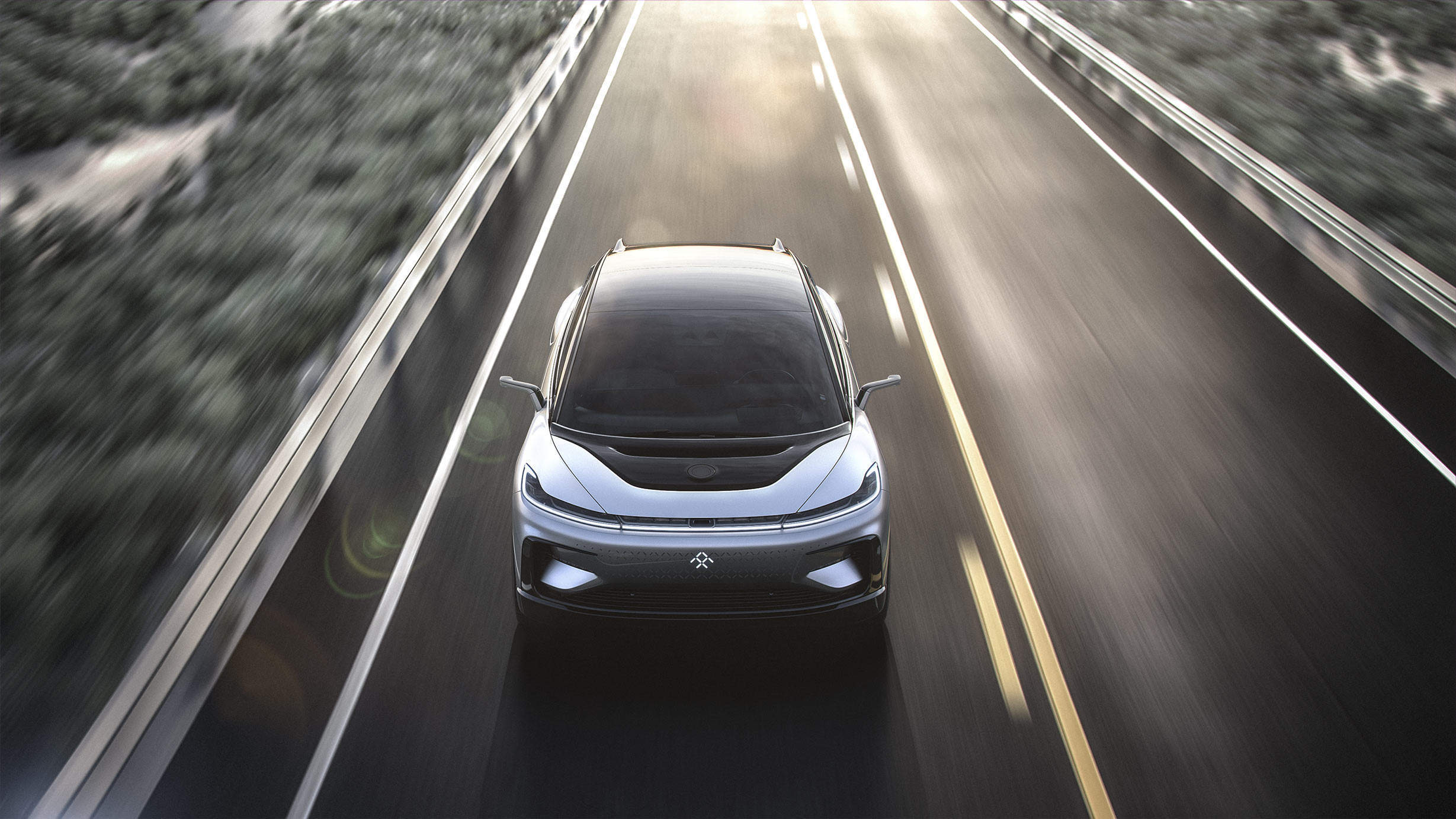
Cult electric car startup Faraday Future has announced that it has joined the Mobility Open Blockchain Initiative (MOBI) in a bid to bring blockchain to electric vehicles (EV) and the wider transport industry.
The car startup, which has gained considerable attention for its futuristic, tech-focused electric car designs, is exploring the use of blockchain to improve the safety, availability and affordability of transportation.

Access deeper industry intelligence
Experience unmatched clarity with a single platform that combines unique data, AI, and human expertise.
MOBI, a non-profit organisation focused on the use of blockchain to improve mobility, is working with a host of vehicle manufacturers, including, Ford, Renault and BMW. Faraday Future joins the organisation as a key figure in the EV startup space.
“FF aims to bring to market a clean, intelligent, connected, and shared mobility ecosystem and being part of MOBI will help us to achieve that,” said Shyam Sundar, Faraday Future head of product for vehicle software platform.
“Blockchain is a key emerging technology in the automotive and mobility space to make transportation safer, more affordable, and more widely accessible. We look forward to collaborating with other renowned partners on furthering this technology.”
How will Faraday Future use blockchain in electric vehicles?
Faraday Future’s precise plans to implement blockchain are being kept relatively vague at present, however the company has listed several areas where it is working with MOBI to use the technology.

US Tariffs are shifting - will you react or anticipate?
Don’t let policy changes catch you off guard. Stay proactive with real-time data and expert analysis.
By GlobalDataThese include vehicle identity, history and data tracking, and supply chain tracking and transparency – an area that is also seeing blockchain put to use in the food industry.
Naturally autonomous vehicles are also a focus, particularly around the payment of their use and their surrounding data markets, as well as more general car sharing and ride hailing.
This suggests that blockchain will be central to the changing use of vehicles in the future – with many predicting that the rise of autonomous technology will result in less vehicle ownership and more Uber-like ride hailing.
It seems that the protection of data will be central to these efforts – which will likely prove vital if the public is to be convinced by such technologies.
“I’m excited that MOBI is coordinating this initiative to use blockchain technology to create a more open platform where users, owners, mobility service companies, and infrastructure providers can better control and monetise their assets, including their data,” said Chris Ballinger, chief executive officer of MOBI.







